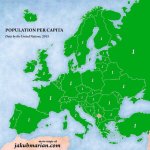steve_bank
Diabetic retinopathy and poor eyesight. Typos ...
It isn't just humans who died in the Northwest heat wave.
The article doesn't clarify whether Dr. Harley is a scientist with a PhD, or a "scientist" with a "PhD."N.Y. Times said:Dead mussels and clams coated rocks in the Pacific Northwest, their shells gaping open as if they’d been boiled. Sea stars were baked to death. Sockeye salmon swam sluggishly in an overheated Washington river, prompting wildlife officials to truck them to cooler areas.
The combination of extraordinary heat and drought that hit the Western United States and Canada over the past two weeks has killed hundreds of millions of marine animals and continues to threaten untold species in freshwater, according to a preliminary estimate and interviews with scientists.
“It just feels like one of those postapocalyptic movies,” said Christopher Harley, a marine biologist at the University of British Columbia who studies the effects of climate change on coastal marine ecosystems.
To calculate the death toll, Dr. Harley first looked at how many blue mussels live on a particular shoreline, how much of the area is good habitat for mussels and what fraction of the mussels he observed died. He estimated losses for the mussels alone in the hundreds of millions. Factoring in the other creatures that live in the mussel beds and on the shore — barnacles, hermit crabs and other crustaceans, various worms, tiny sea cucumbers — puts the deaths at easily over a billion, he said.
...
When he walked to the beach last week on one of the hottest days, the smell of decay struck him immediately. The scientist in him was excited, he admitted, to see the real-life effect of something he’d been studying for so long.
But his mood quickly changed.
“The more I walked and the more I saw, the more sobering it all became,” Dr. Harley said. “It just went on and on and on.”
The dead sea stars, usually the most eye-catching creatures in tidal pools, hit him particularly hard. But the obvious mass victims were blue mussels, an ecologically important species that feeds sea stars and sea ducks and creates habitat for other animals.
...
“We are already at critical temperatures three weeks before the most serious heating occurs,” said Don Chapman, a retired fisheries biologist who specialized in salmon and steelhead trout, talking about conditions along the Snake River in Washington, where four dams are the subject of longstanding controversy. “I think we’re headed for disaster.”
The plight of the salmon illustrates a broader danger facing all kinds of species as climate change worsens. Many animals were already struggling to survive because of human activity degrading their habitats. Throw in extreme heat and drought, and their odds of survival diminish.
It is true.
From local reporting shallow water marine life has been literally cooking to death.
High temperatures reduce saturated O2 in shallow waters and spawning salmon suffocate.
Salmon is a sensitive issue in the PNW. Part of it is ties to Native American traditions and treaties that guaranteed fishing rights, some depend on it.
Then there is the fishing industry. Salmon is a high quality food. Salmo
It was reported in the 90s the Pacific Coast marine life is migrating north slowly as water gets warmer.

